Anna Hirsch-Holland, TPI’s Programme Director for Funder Impact, shares her reflections from a recent event co-hosted by TPI.
TPI had the pleasure of co-hosting Philea’s fifth “What if? Reimagining Philanthropy” event, together with Jacobs Foundation, on how funders can support partnership in efforts to drive systems change.
With speakers and participants from both philanthropy and civil society, the discussions highlighted some of the challenges and opportunities facing funders with ambitions to partner more effectively and equitably in pursuit of systems change.
For me, three key reflections emerged from the event:
1. Trusting and respectful partnerships are built at an institutional as well as individual level
Trust and respect in relationships is essential for an authentic, healthy, and equitable partnership. Such trust must be built at a personal level – between individual staff from organisations that are partnering together. However, trust-building also depends on institutional support in terms of systems, processes, and strategic approach. This comes to the fore in relationships between funder and grantee, where intrusive and cumbersome grant-making procedures, or sudden changes in strategic funding priorities, can undermine efforts to build genuine partnerships. There are many resources available to help foundations assess these procedural elements – including the Trust-Based Philanthropy’s Self Reflection tool, and TPI’s Fit for Partnering Framework.
2. There can be a tension between the drive to generate evidence and efforts to shift power
Funders are understandably keen to ensure that their philanthropic capital is deployed to maximum effect, and this explains the drive for evidence-based impact. However, this can be at odds with the desire to “let go of control” and shift power to grantees – trusting them to use their grants appropriately, and accepting risks on less evidenced approaches. One way around this is to develop a partnership with grantees in which the burden of proof does not fall on the latter but is a shared responsibility with a focus on strategic learning around common goals. Such an approach is being piloted by Porticus foundation, for example, where grantees together with the foundation select a learning partner who accompanies them throughout a three to five year strategic programme cycle.
3. Board members and senior leadership must be brought on board to shift institutional practices
There are fundamental cultural, procedural, and strategic shifts required if funding practices are to support collaboration for systems change, and these shifts must be supported by the senior leadership and board members of funders. However, these individuals are rarely part of the important conversations (such as the ones taking place in Philea’s “What If” sessions) where new approaches and attitudes are explored and gain traction. How can foundation staff engage their leadership in these conversations? In TPI’s experience – both within philanthropy but also among civil society organisations, business, the UN, and government – the changes often begin with a small number of ‘rebellious’ staff members: those who are willing to challenge business-as-usual, and to champion new approaches both horizontally among their peers and upwards to leadership.
If you want to hear more from the session itself, you can read Philea’s event report here, or you can watch videos of the interventions provided by the five speakers:
Jeroo Billimoria, Catalyst 2030, with practical advice on what philanthropy needs to do differently to build authentic partnerships.
Tatiana Garavito, activist and facilitator, addressed the importance of partnering with social movements and the grassroots; the skewed power dynamics in philanthropy; and how the mindsets and culture of funders need to change.
Themba Moeti, Health Systems Trust, shared tips for funders wanting to support partnership platforms for multi-stakeholder collaboration.
Peter Beez, SDC Swiss Agency for development and cooperation, addressed how partnerships could be developed based on inclusive, evidence-based business models.
Finally, Sabina Vigani, Jacobs Foundation and Catalytica Consulting, provided insights on how to promote collaborative cross-sector efforts, and the role philanthropy can play in this.
Anna Hirsch-Holland, Programme Director for Funder Impact
If you’re a philanthropic funder interested in exploring any of these issues further, TPI invites you to join our peer group of foundations looking into how philanthropy can harness the power of partnership to maximise impact.
Please contact anna.hirsch-holland@thepartneringinitiative.org.


